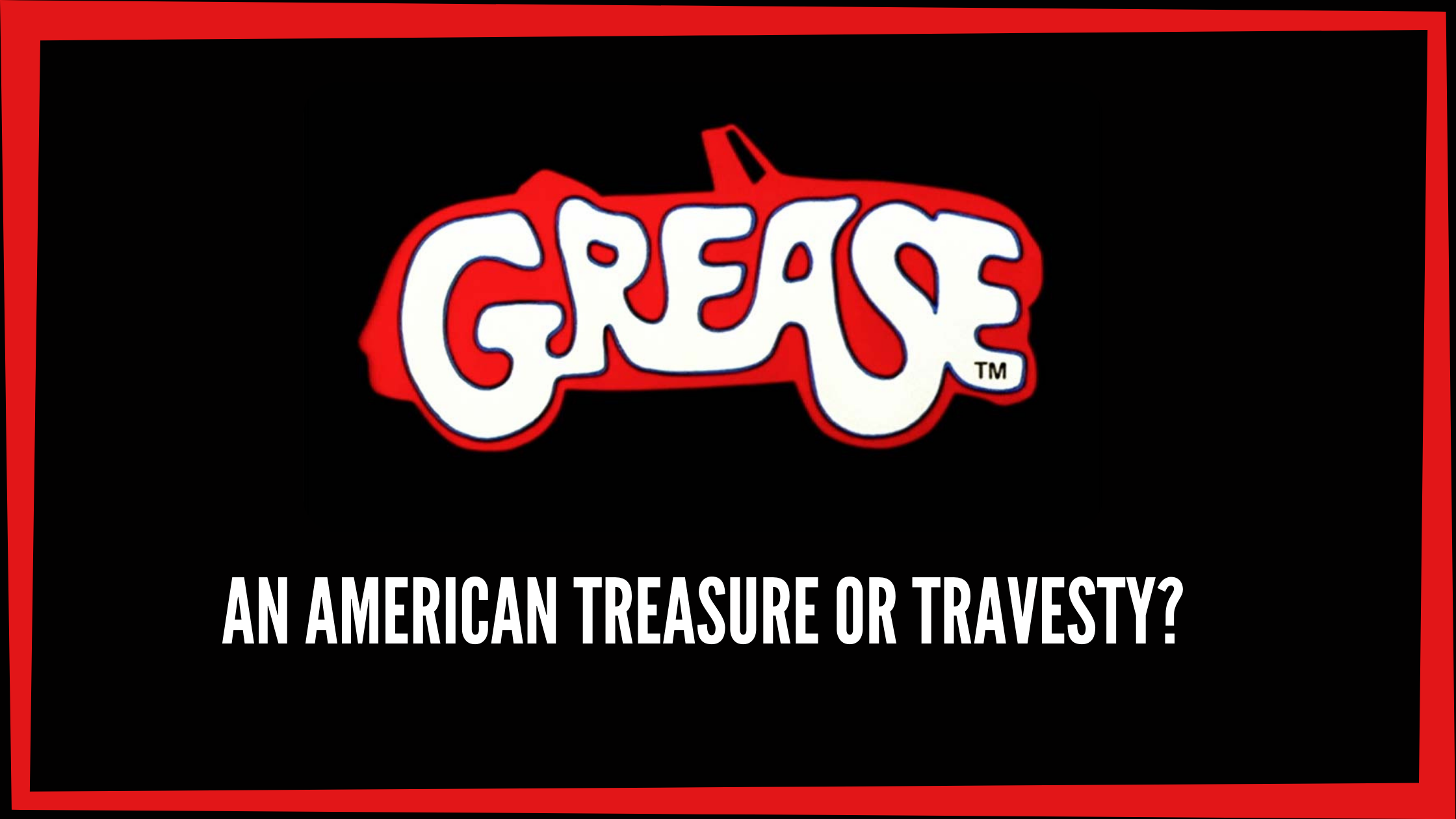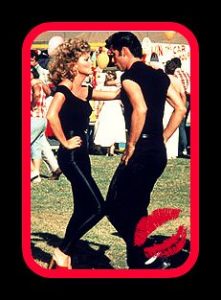
Grease: American Treasure or Travesty?
By: Jochebed Airede

It should be no surprise that Grease, with its upbeat musical numbers, fast cars, and hair gel (so much hair gel), remains one of the highest-grossing musicals and a favorite of many American households over forty years after its release. However, the film has recently caused a furor over scenes which viewers have cited as “sexist” and “rapey”—criticism that has since been dismissed by the film’s leading lady, Dame Olivia Newton-John, who played Sandy Olsson. Newton-John insists that the movie was meant to be “fun” with no meanings attached to the plot or characters. Having barely watched the film some years ago, I decided to re-watch it and see what I thought.
Right off the bat? John Travolta was gorgeous in the 70s.
But, seriously, Newton-John is right—Grease is fun. From the animated credits at its start to the flying car at its end, the entire film is a hilarious farce. The school nurse bemoans the loss of her castor oil; the boys play more pranks than they take notes (though they should be taking their senior year seriously, but okay); the Principal’s secretary is a chocolate-loving ditz; and, as she pleads for her students to show how “clean-cut” and “wholesome” they are, the Principal almost chokes on the tongue-in-cheek humor—it’s a shameless mockery of the American high-school life. Each character is an exaggerated archetype, with Newton-John playing the innocent, new in town, ‘goody-two-shoes’ and Travolta the resident ‘bad boy’ Danny Zuko. Danny swings his hips as if possessed by Elvis himself and Marty, Sandy’s friend, sprays her love letters with perfume. The film is unavoidably enjoyable, and its influence is clear on a modern-day film series like High School Musical, which I love.
Nevertheless, this doesn’t erase the film’s problematic areas—and there are plenty. Firstly, Danny’s friends equate women with sex. When he is goaded by them into regaling the tale of his summer fling with Sandy, one would think they were asking for the scores of a recent football game: they trip over themselves in their eagerness, desperate to know if he got into her “drawers” and if she “put up a fight.” They are crass and leering, their minds focused on Sandy’s bust. Though it’s never said in the film, I understand that we’re to accept this as part of the ‘boys will be boys’ rhetoric. Joe Hildebrand, an Australian journalist, writes in a semi-defense that they’re “confused adolescents, terrified of humiliation and desperate not to lose their friends.” While this rings slightly true, it doesn’t excuse some of the blatant acts of sexual harassment that they commit, like looking up a girl’s skirt—how is this to be explained away by mere teenage anxiety? Also noteworthy is how one of the boys spikes the punch at their school dance with alcohol. Again, we’re meant to view this as simple, adolescent rebellion—but, again, it’s difficult to accept, as a woman who’s often feared the moment when someone could spike her drink with alcohol or drugs. From a modern lens, these things are hard to excuse—and the question is, should I be forced to?
Some fans argue that the outcry is unfounded, considering that Grease was set in the 50s, a notably challenging time for women in America—and I disagree: a film set in a sexist era does not make the sexism any more acceptable than it should be now. It’s not about “political correctness” as a Yahoo! article suggests, but about basic decency—when is it ever okay to look up a woman’s skirt? In the 50s, which is reportedly “a time when political correctness definitely wasn’t what it is now”? Yes, it makes it understandable—but there is a difference between understandable and acceptable. Following this rationalization is a slippery slope: will we soon say that it’s all right that Roger Moore slapped Maud Adams, his female co-star, in The Man with The Golden Gun because it was filmed in 1974 (4 years before Grease)?
Still, there are aspects of Grease that are revolutionary for its time. Take Danny, for instance. As a boy struggling to reconcile his love for Sandy with the conflicting tough-guy exterior expected of him by his friends, he typifies the overwhelming pressures of toxic masculinity in an era before the term was even coined. And, though he falters, he eventually triumphs, following Sandy’s chiding that he should do more than mock the school’s athletes and become one himself. In so doing, he leaves his friends and carefree leather-jacket days behind—something he couldn’t do at the film’s start when he pretended not to like Sandy to appear the ‘manly man’ before his posse. Plus, a whole song by Rizzo—Sandy’s tentative friend who becomes the talk of the school when rumors spread that she’s pregnant—highlights the judgment women face when their romantic history is made known, though “there are worse things” she could do. Although these subtleties aren’t developed for the sake of sustaining the film’s romantic focus, they are still there—thus, redeeming the film.
So, my verdict? Grease isn’t inherently sexist—but it does have sexist elements that we shouldn’t ignore. Hildebrand dismissed the complainants by reminding them that the film asks us to learn to “loosen up” while British journalist, Andrew Pierce, simply asks the offended “woke warriors” to not watch the film—but this only reduces the validity of their argument and willfully rejects the truth that there are negatives to Grease.
This doesn’t mean that I would never watch it again or impose the same limits on others—it just means that I understand that films, though beloved, can be both good and bad. That, though Grease is funny, some characters are questionable and shouldn’t be celebrated. Rather than silencing each other, we should be having a conversation about it. I hope this piece moves you to do so.

